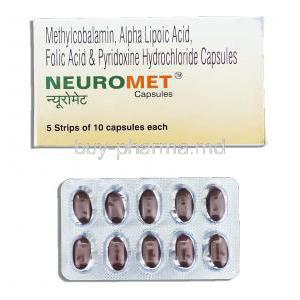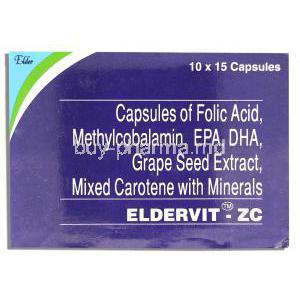Troycal, Calcium Carbonate/ Vitamin D3
- Overview of Troycal (Calcium Carbonate/Vitamin D3)
- How Troycal Works
- Composition and Properties
- Role of Calcium Carbonate
- Role of Vitamin D3
- Calcium Carbonate Common Name
- Detailed Composition of Troycal
- Calcium Carbonate Chemical Formula
- Is Calcium Carbonate Soluble in Water
- Calcium Hydrogen Carbonate
- Chemical Formula for Calcium Carbonate
- Calcium Citrate vs Calcium Carbonate Kidney Stones
- Does Calcium Carbonate Dissolve in Water
- Vitamin D2 vs D3
- What is the Difference Between Vitamin D and Vitamin D3
- Magnesium Glycinate and Vitamin D3
- Uses of Troycal, Calcium Carbonate/ Vitamin D3
- Off-Label Uses
- Dosage and Administration
- Recommended Dosages for Different Age Groups
- Methods of Administration and Timing
- Adjustments in Dosage Based on Specific Conditions
- Calcium Carbonate Dosage
- Calcium Carbonate Maximum Dose
- Calcium with Vitamin D3 Dosage for Adults
- How Soon Will I Feel Better After Taking Vitamin D3
- Best Time to Take Vitamin K2 and D3
- Side Effects
- Important Precautions
- Interactions
- Contraindications
- Careful Administration
- Warnings and Cautions
- Handling and Storage
- Overdosage
Overview of Troycal (Calcium Carbonate/Vitamin D3)
Troycal is a combined supplement that combines Calcium Carbonate with Vitamin D3 to enhance bone health and help with absorbing calcium. This blend not only helps in keeping bones strong but also plays a crucial part, in nerve-muscle coordination and immune system function.

Calcium Carbonate

Vitamin D3
Importance of Calcium and Vitamin D3 in the Body
- Calcium plays a role, in building and keeping bones and teeth strong as well as aiding in blood clotting transmitting nerve signals and muscle contraction.
- Vitamin D3 helps improve the absorption of calcium and phosphorus regulates cell growth and supports function. Shortages of either nutrient can result in bone density, osteoporosis and various health problems.
Common Applications and Health Benefits
Troycal is often suggested for preventing or addressing calcium and vitamin D3 deficiencies. It is especially helpful in managing conditions including;
- Rickets in kids, which leads to bone deformities due to insufficient mineralization of growing bones.
- Osteomalacia in adults is marked by bone softening due to inadequate mineralization.
- Osteoporosis, is a condition that raises the risk of bone fractures due, to decreased bone strength.
How Troycal Works
The healing benefits of Troycal come from how its components work helping to keep bones healthy and support metabolism.
Mechanism of Action for Calcium Carbonate
Calcium Carbonate mainly functions, as a provider of calcium a mineral that strengthens the skeletal system. It also helps balance stomach acidity working as an antacid, which in turn supports the absorption of calcium in the intestines.
Mechanism of Action for Vitamin D3
Vitamin D3, also known as cholecalciferol plays a role in helping the body absorb calcium. It helps the kidneys retain calcium that might otherwise be lost and improves the absorption of calcium, in the intestines.
Synergistic Effects of Both Components
Calcium Carbonate and Vitamin D3 work together to improve how well the body absorbs calcium. This partnership plays a role in ensuring strong bones and maintaining the right levels of calcium, in the body.
Calcium Carbonate Solubility
Although calcium carbonate doesn't dissolve easily in water its solubility increases significantly when exposed to acids. This property is important for its breakdown in the conditions of the stomach, which then aids in its absorption, in the intestine.
Composition and Properties
The Troycal supplement is a crafted mix created to enhance bone health by combining the beneficial effects of its main ingredients;
Calcium Carbonate and Vitamin D3. This formula caters to the body's requirements, for calcium and vitamin D3 addressing both term and long term needs effectively.
Role of Calcium Carbonate
Calcium Carbonate, widely recognized for its high calcium content provides advantages, for bone strength and overall structure. Additionally, it acts as a stomach acid neutralizer helping improve the absorption of calcium effectively.
Role of Vitamin D3
Vitamin D3, also known as cholecalciferol helps the body absorb calcium, from the gut. Incorporates it into the bone structure. It also aids in system function and regulates cell growth.
Calcium Carbonate Common Name
Limestone, the name, for Calcium Carbonate is well known for its natural form as a sedimentary rock.
Detailed Composition of Troycal
Troycal is formulated with a blend of Calcium Carbonate and Vitamin D3 to achieve optimal effectiveness.
Additionally, additional components, like fillers and binding agents are incorporated to uphold the tablets stability and usability.
Calcium Carbonate Chemical Formula
The formula, for Calcium Carbonate is CaCO3.
Is Calcium Carbonate Soluble in Water
Calcium carbonate doesn't dissolve much in water. It tends to break down more in acidic conditions.
Calcium Hydrogen Carbonate
In settings calcium bicarbonate, which is also referred to as calcium hydrogen carbonate usually arises when calcium carbonate interacts with water and carbon dioxide.
Chemical Formula for Calcium Carbonate
The chemical formula of Calcium Carbonate, CaCO3 highlights the presence of calcium, carbon, and oxygen in its composition.
Calcium Citrate vs Calcium Carbonate Kidney Stones
Individuals who are prone to kidney stones are often advised to consider calcium citrate due, to its higher solubility and a lower likelihood of stone formation compared to calcium carbonate.
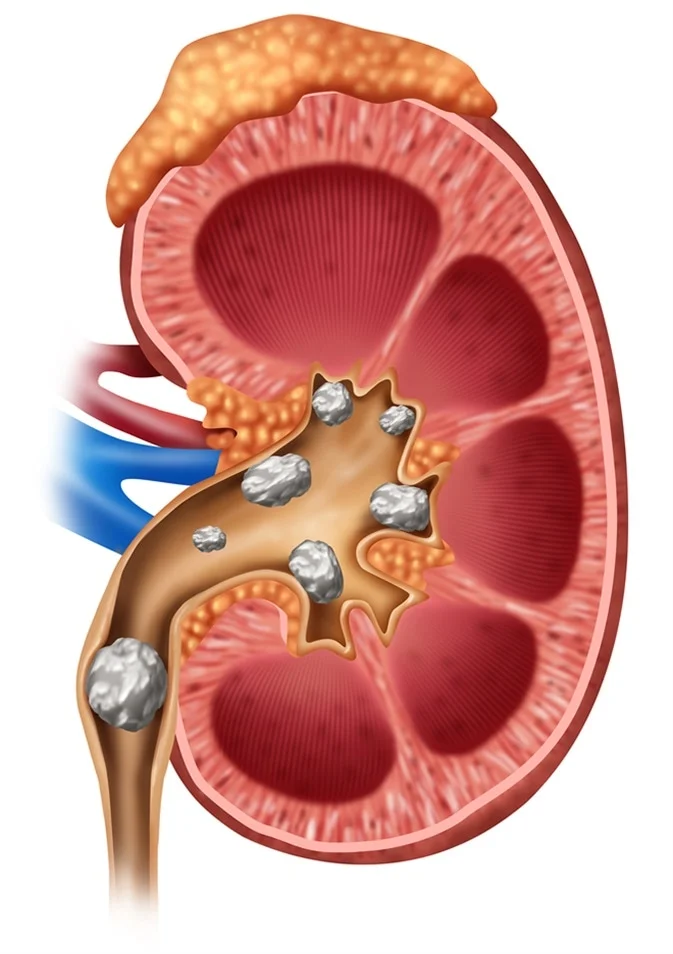
Does Calcium Carbonate Dissolve in Water
Although Calcium Carbonate does not readily dissolve in water it can break down when exposed to carbon dioxide or acidic environments leading to the formation of a calcium form that's easier for the body to absorb.
Vitamin D2 vs D3
Vitamin D2 (ergocalciferol) and D3 (cholecalciferol) have sources and strengths with D3 being more easily absorbed by the body.
What is the Difference Between Vitamin D and Vitamin D3
Vitamin D consists of soluble secosteroids that help enhance the absorption of calcium in the intestines among other functions. When we talk about Vitamin D3 we are referring to cholecalciferol, which's a stronger and naturally existing type of Vitamin D, in humans.
Magnesium Glycinate and Vitamin D3
Magnesium Glycinate boosts the benefits of Vitamin D3 helping the body absorb and use calcium efficiently. This in turn aids in maintaining bones and lowering the chances of developing long-term illnesses.
Uses of Troycal, Calcium Carbonate/ Vitamin D3
Troycal, containing both Calcium Carbonate and Vitamin D3 is crafted to tackle a range of health issues that go beyond just keeping bones healthy. By utilizing the qualities of each ingredient this blend offers a wide array of health advantages.
Primary Uses in Bone Health and Prevention of Osteoporosis
The combination of Calcium Carbonate and Vitamin D3 in Troycal is widely recognized for its ability to strengthen bone density and structure. It helps reduce the likelihood of osteoporosis a condition marked by brittle bones by improving the mineral content in the skeletal system. This is important for older adults and those with higher susceptibility due to different factors.
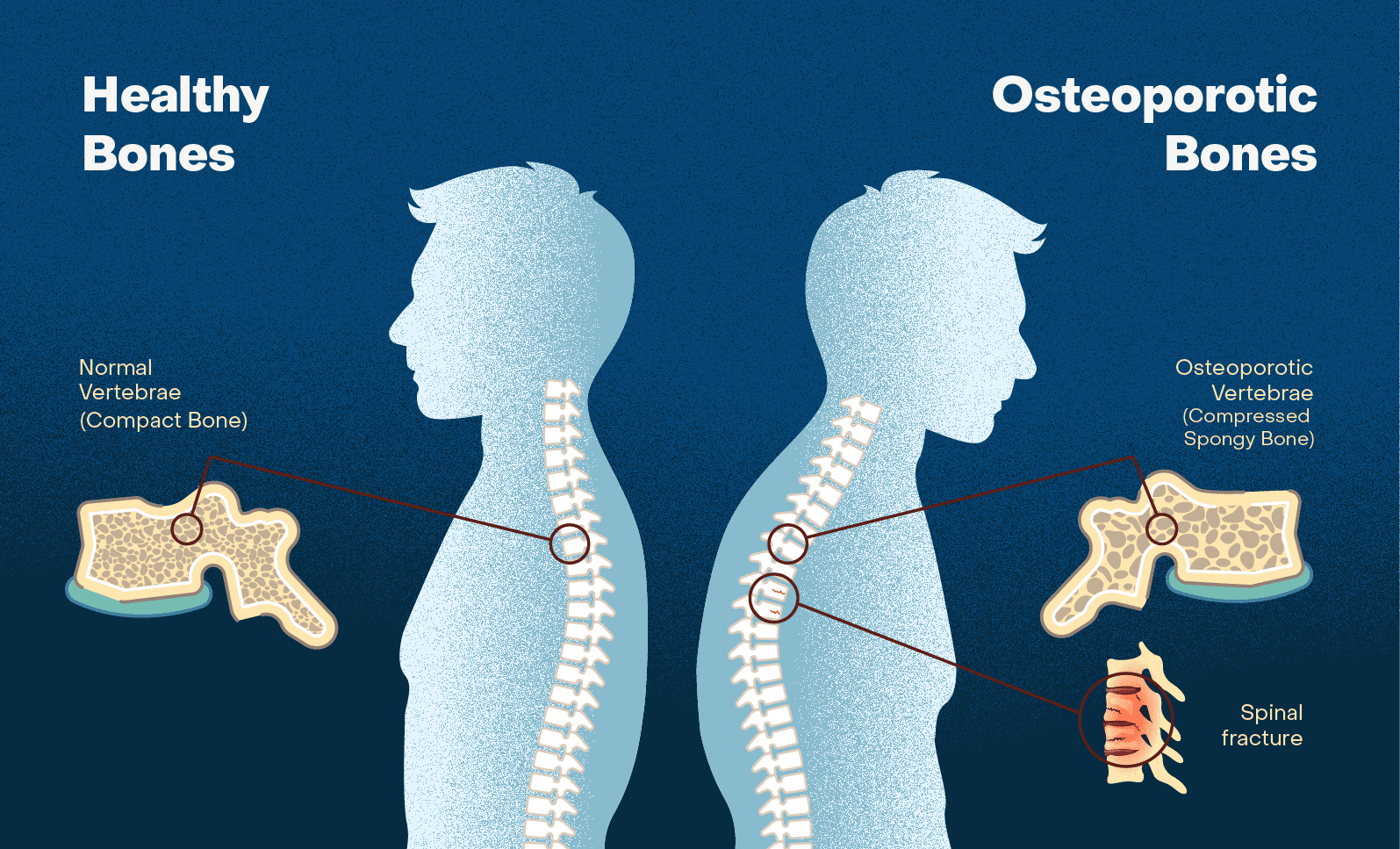
Benefits for Muscle Function and Nervous System
Calcium is crucial for muscle contraction and releasing neurotransmitters vital, for muscle activity and nerve system function. Meanwhile, Vitamin D3 promotes nerve development. Boosts muscle power aiding in strong muscle performance and a sharp nervous system.

Impact on Other Aspects of Health (e.g., Cardiovascular Health)
Calcium carbonate is connected to enhancing health by helping to regulate heart rhythms and keep arterial pressure, in check. Vitamin D3 lowers the risk of issues by preventing vascular calcification and improving arterial flexibility.
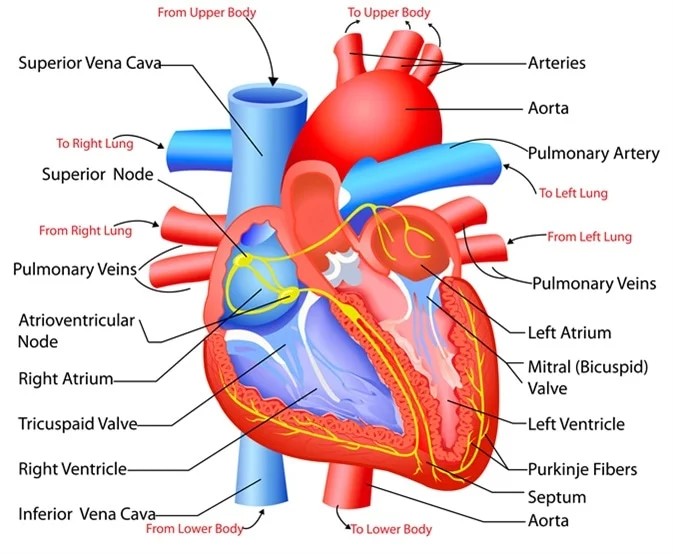
Calcium Carbonate for Dogs
Calcium carbonate is crucial in the field of medicine often employed to enhance the diets of dogs for maintaining sturdy bones and teeth, particularly in breeds susceptible, to calcium deficiencies.
Vitamin D3 Benefits Sexually
Vitamin D3 plays a role in controlling testosterone levels, which can have an impact, on sex drive and sexual abilities. Taking Vitamin D3 supplements has been shown to enhance well-being and performance.
Vitamin D3 and K2 Weight Loss
Blending Vitamin D3, with Vitamin K2 could boost the chances of losing weight. Together they team up to control metabolism and help distribute body fat which explains why they are commonly included in weight loss plans.

Does Vitamin D3 Make You Taller
Although Vitamin D3 plays a role in maintaining bone health there is no conclusive proof that it contributes to height increase in adults. Nonetheless ensuring sufficient Vitamin D3 levels during childhood and adolescence is essential, for attaining ones genetic height potential.
Off-Label Uses
Troycal, widely known for its effects on bone health and as a source of calcium has recently sparked interest for its potential in treating conditions outside of its intended purposes. Research, into these alternative uses uncovers a range of potential therapeutic benefits, backed by new studies.
Exploration of Non-Approved Uses
The use of medications for purposes not approved by agencies for particular uses can provide valuable insights and advantages when standard treatments fail to produce the desired results.
The effectiveness of Troycals ingredients, including Calcium Carbonate and Vitamin D3 is currently under investigation for their benefits in treating a range of conditions, beyond skeletal issues.
Research and Studies Supporting These Uses
Studies have recently looked into how Calcium Carbonate and Vitamin D3 can help with various health conditions;
- Depression; Some research suggests that Vitamin D3 could impact mood and ease depression symptoms with clinical trials showing promising outcomes.
- Cancer Prevention; Studies indicate a possible connection between higher Calcium and Vitamin D intake and a reduced risk of specific cancers like colorectal and breast cancer.
- Diabetes Management; The role of Vitamin D3 in regulating insulin levels hints at its potential, for assisting in the management of type 2 diabetes.
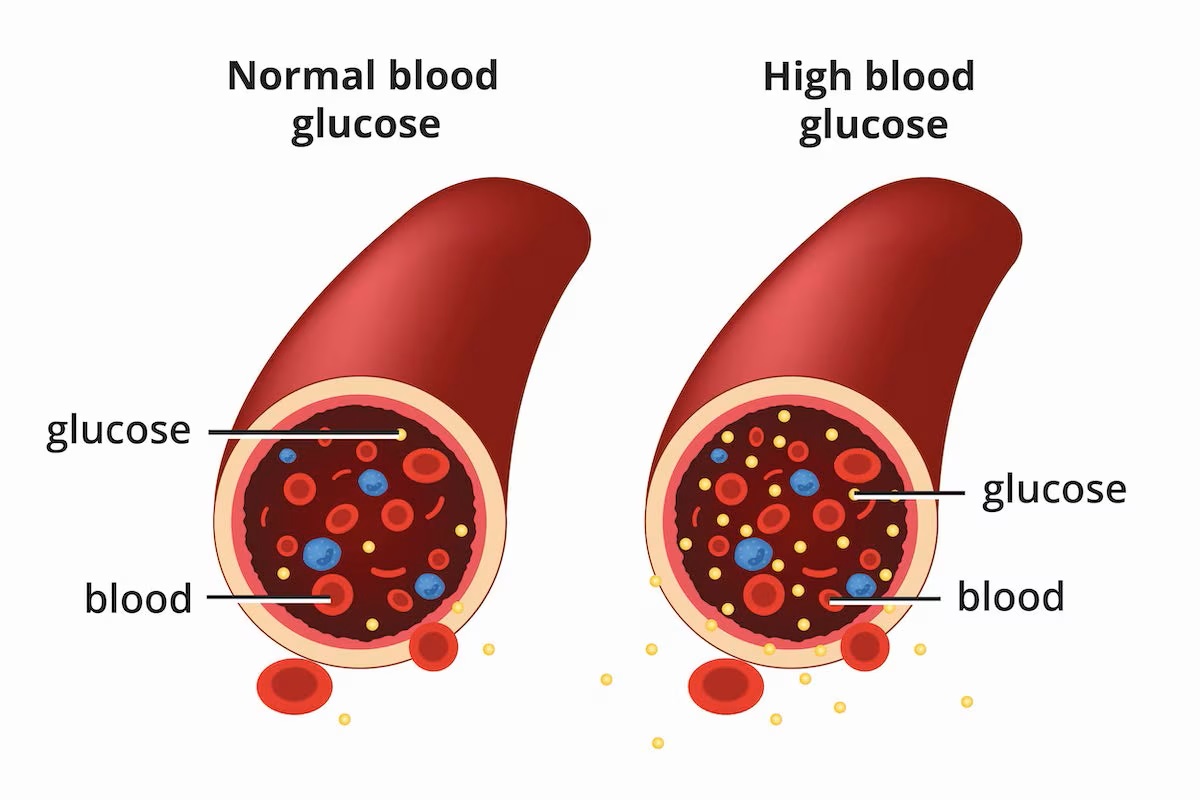
Potential Benefits in Other Conditions
The study of Troycal for off-label uses spans across health domains presenting potential advantages such as;
- Boosting the immune system, Troycal could help lower the chances of autoimmune disorders and infections.
- Regulating blood pressure by releasing calcium ions in a controlled manner to potentially reduce the risk of hypertension.
- Enhancing gut health and potentially assisting in managing conditions like inflammatory bowel disease due, to the anti-inflammatory properties of Vitamin D3.
While these discoveries show promise they need validation through extensive research and clinical trials to confirm the effectiveness and safety of using Troycal in these non-traditional applications.
Dosage and Administration
The correct amount and way to use Troycal are crucial, for getting the most out of its advantages while reducing any possible dangers. This section explains the suggested doses, best timing and adjustments needed for health conditions.
Recommended Dosages for Different Age Groups
- For children aged 1-8 years it is recommended to consume 500 800 mg of calcium and 600 1000 IU of Vitamin D3 on a basis.
- Adolescents between 9-18 years should aim for 1,300 mg of calcium and 600 1000 IU of Vitamin D3 daily.
- Adults aged 19-50 years are advised to get 1,000 mg of calcium and 600 2000 IU of Vitamin D3 daily.
- Seniors above the age of 50 should consider increasing their intake to 1,200 mg of calcium and consuming between 800-2000 IU of Vitamin D3 each day to support bone health and account for decreased production of Vitamin D, in the skin.

Methods of Administration and Timing
Troycal is usually taken by mouth in the form of tablets or capsules. Calcium is best absorbed when taken with meals whereas Vitamin D3 can be ingested with or without food. Keeping a schedule, for taking this supplement helps in keeping blood levels stable.
Adjustments in Dosage Based on Specific Conditions
Changes in the dosage may be needed for people with conditions like kidney problems, high parathyroid levels or those on steroid treatment that can affect calcium levels;
- To avoid high calcium levels a lower Calcium dose might be needed for kidney issues.
- People, with sun exposure or digestive problems absorbing fats may require higher Vitamin D3 doses.
Calcium Carbonate Dosage
The typical recommended amount of Calcium Carbonate for adults varies between 500 mg to 1,200 mg per day split into doses, for improved absorption.
Calcium Carbonate Maximum Dose
It is advised that adults should not consume than 2,500 mg of Calcium Carbonate per day to avoid potential risks such, as hypercalcemia.
Calcium with Vitamin D3 Dosage for Adults
To keep your bones healthy and support metabolic functions most adults need 1,000 mg of Calcium along with 800, to 2000 IU of Vitamin D3 every day.

How Soon Will I Feel Better After Taking Vitamin D3
Symptoms linked to a lack of Vitamin D3 like tiredness and weak muscles show signs of getting better after a few weeks of regularly taking supplements.
Best Time to Take Vitamin K2 and D3
To get the outcomes its recommended to consume Vitamin K2 and D3 with a meal that contains fat, for better absorption.
It's ideal to take them in the morning to align with the body's cycle of Vitamin D synthesis triggered by sunlight.
Side Effects
The use of Troycal administration although helpful for maintaining bone health and regulating calcium levels may sometimes result in a variety of side effects ranging from mild to severe.
Recognizing these responses and how common they are is important, for both patients and healthcare professionals.
Common Side Effects
Many individuals who use Troycal typically encounter side effects, such as;
- Feeling queasy and bloated especially if the supplement is consumed without having eaten.
- Dealing with constipation is an issue, with calcium supplements that can be managed by staying well hydrated and consuming enough fiber.
- Experiencing symptoms of hypercalcemia like tiredness or mental fog although uncommon, when the dosage goes beyond the recommended amount.

Potential Severe Side Effects
Sometimes although it's not common serious reactions can occur that need urgent medical care;
One example is kidney stones, which can develop from long-term intake of high calcium amounts without drinking water.
Another concern is heart-related problems like high blood pressure and irregular heartbeats which can be associated with excessively high levels of calcium, in the body.
Statistics on Occurrence Rates
The occurrence of side effects is uncommon with notable negative responses such as hypercalcemia happening in less, than 1% of individuals following closely monitored treatment plans.
Important Precautions
To maximize the advantages of Troycal while reducing risks it is important to follow certain safety measures, especially for those, with existing health issues or unique lifestyle considerations.
Precautionary Measures for Patients with Existing Conditions
Patients who have disease, hyperparathyroidism or a background of kidney stones are advised to use Troycal with care;
- People with kidney issues might need dosage adjustments to avoid high calcium levels and calcification in blood vessels.
- Individuals, with sarcoidosis should regularly check their calcium levels as they face a chance of experiencing elevated calcium levels.
Dietary and Lifestyle Considerations
To boost the benefits of Troycal and minimize its side effects consider making adjustments to your diet and daily routine;
- Eating a well-rounded diet high, in fiber can help ease any constipation issues linked to taking calcium.
- Engaging in physical activity, especially weight-bearing exercises, can improve the absorption of calcium and strengthen your bones.
Monitoring and Follow-Up Requirements
It's recommended for individuals using Troycal for a period to routinely check their blood calcium levels and undergo renal function tests to proactively manage any potential negative impacts;
- Schedule yearly appointments with a healthcare professional, to fine-tune medication doses and evaluate overall well-being.
- Seek medical advice from a healthcare provider if experiencing unusual symptoms or severe side effects.

Interactions
Troycal, which consists of Calcium Carbonate and Vitamin D3 has the potential to interact with substances, like prescription drugs, specific foods, and other supplements. These interactions could impact the effectiveness of the therapy and present health concerns if not carefully handled.
Drug Interactions with Troycal
Some medications might not work well with Troycal so it's important to adjust the dosage or timing to avoid any problems;
- Bisphosphonates; Calcium can affect how bisphosphonates are absorbed. It's best to take these meds two hours before or four to six hours after calcium supplements.
- Antibiotics; Tetracycline and fluoroquinolone antibiotics shouldn't be taken at the time, as calcium products since it can make the drugs less effective.
Food Interactions
When it comes to absorbing calcium it's recommended to take it with food. However there are food components that can interfere with its absorption;
- Eating meals high in fiber can combine with calcium. Lower its absorption rate.
- Foods like spinach that're rich, in oxalates can also hinder the absorption of calcium so it's best not to consume them together with calcium supplements.
Impact of Other Dietary Supplements
When taking supplements it's important to be mindful of potential interactions to prevent overconsumption of nutrients or decreased effectiveness;
- Iron Supplements; To ensure proper absorption, it's advisable to space out the intake of iron and calcium supplements throughout the day.
- Magnesium; Taking high doses of magnesium may compete with calcium, for absorption so maintaining a balanced intake ratio is essential.
Calcium Carbonate and Hydrochloric Acid
Calcium carbonate combines with hydrochloric acid to create calcium chloride, water and carbon dioxide showcasing its ability to act as an antacid.
Oyster Shell Calcium vs Calcium Carbonate
Calcium from oyster shells sourced from the sea and synthetic calcium carbonate both contain calcium but could have variations, in how well the body absorbs them and their levels of heavy metals.
Contraindications
Some people should avoid using Troycal. They should only use it with close medical oversight because of possible health hazards.
Who Should Not Use Troycal?
People with medical conditions are usually recommended to avoid taking calcium and vitamin D supplements. These conditions include having much calcium, in the blood (hypercalcemia) and severe kidney disease, which can worsen calcium build -p and increase the chances of developing kidney stones.
Specific Health Conditions and Contraindications
Other health conditions that might not be suitable for taking Troycal are;
- Sarcoidosis, as it can cause calcium levels due to increased calcium absorption Hyperparathyroidism unless under the guidance of a healthcare professional, for particular treatment objectives
Genetic Factors Influencing Contraindications
Genetic factors that impact mineral metabolism or mutations in the vitamin D receptor may also require consideration or even avoidance of calcium and vitamin D supplements.
Careful Administration
When giving Troycal it's important to take into account the patients age, physical condition and general well being to make sure it's safe and works well. Customizing the treatment, for groups can help reduce dangers and improve the results of therapy.
Guidelines for the Elderly
As people age their bodies may require attention because their kidneys may not work as well and their metabolism can change. It might be important to use amounts of Troycal to avoid having too much calcium in the blood and its essential to keep an eye on kidney function to prevent issues, like kidney stones.
Administration to Pregnant Women and Nursing Mothers
Throughout pregnancy and breastfeeding the bodys need, for calcium and vitamin D rises. Troycal can help meet the increased mineral needs. Its important to consult a healthcare provider to ensure you don't surpass the recommended daily intake.
Calcium Carbonate Pregnancy
During pregnancy it is commonly believed that calcium carbonate is safe, for use as long as it is used according to instructions. This mineral can support the calcium needs of pregnancy contributing to the formation of the baby's skeletal structure and ensuring the mother's bone health is maintained.
Considerations for Children
Kids need calcium to grow and develop. The amount of Troycal given to children should be adjusted based on their age to help their bones grow properly and avoid the risk of taking too much.
Warnings and Cautions
Troycal offers advantages to individuals but it is important to follow specific precautions and instructions to avoid misuse and potential risks.
Critical Warnings About Troycal Usage
Individuals who have previously had kidney stones or significant kidney problems should exercise caution when using Troycal. This product has the potential to worsen the formation of stones. May result in renal issues if not carefully supervised.
Legal and Medical Disclaimers
Troycal should be taken as instructed by a healthcare professional. Any claims about its advantages are not meant to diagnose, treat, cure, or prevent any illness. It is important for individuals not to ignore advice, from professionals or postpone seeking it based on information they have come across about Troycal.
Guidance on Avoiding Misuse
To prevent misuse of Troycal it's important for patients to follow the recommended dosages and avoid mixing it with calcium supplements unless advised by a healthcare professional. It's also an idea to have regular medical check ups to keep track of calcium levels and kidney function.
Calcium Carbonate in Urine
Consuming much calcium carbonate may result in its presence in urine a condition called hypercalciuria which increases the likelihood of developing kidney stones. Keeping track of calcium levels in urine can be beneficial, in controlling this risk.
Handling and Storage
Taking care of Troycal is essential to maintain its quality and effectiveness. By handling and storing it with care you can prevent degradation. Ensure that the supplement remains effective throughout its shelf life.
Proper Storage Conditions
Troycal should be kept in a dry area shielded from direct sunlight and moisture to avoid the breakdown of its active components. It is best to store it at temperatures, below 25°C (77°F).
Shelf Life and Expiration
Troycal usually lasts, between two to three years after it's made. It's important for patients to keep an eye on the expiration date and not use it after that time to make sure it works well and is safe.
Disposal and Environmental Concerns
Properly dispose of expired or unused Troycal by using pharmaceutical take-back programs. These programs ensure that drugs are disposed of responsibly protecting the environment and preventing water and soil contamination.
Overdosage
Ensuring an intake of Troycal is crucial, for keeping your health in check but consuming too much can result in severe health issues. Being able to identify signs of overdose and knowing what steps to take can help prevent any health complications.
Symptoms of Overdose
Symptoms of taking much Troycal can include; Feeling nauseous throwing up and experiencing ongoing stomach discomfort. Experiencing confusion, tiredness and in extreme situations heart rhythm issues due to high calcium levels, in the body.
Immediate Actions and Antidotes
In case of overdosing on Troycal it's important to get medical help. The usual treatment includes; Stopping the intake of the supplement. Receiving fluids to help eliminate excess calcium. Taking medications, like calcitonin to swiftly reduce blood calcium levels.
Long-Term Management of Overdosage
To address the lasting impacts of taking much Troycal it's important to keep a close eye on your health and consider making changes to your calcium intake over time. It might be necessary to have check-ups, with healthcare providers to monitor your calcium levels and kidney function in order to avoid future issues.
Troycal, Calcium Carbonate/ Vitamin D3 FAQ
- Where does calcium carbonate come from?
- What is the chemical formula for calcium carbonate
- What is calcium carbonate made of?
- What has calcium carbonate in it?
- Where is calcium carbonate found?
- What is the common name for calcium carbonate?
- Wow much elemental calcium in calcium carbonate?
- What is calcium carbonate used for in food?
- How to take calcium carbonate as phosphate binder?
- What is calcium carbonate common name?
- What is the difference between vitamin d and vitamin d3?
- How soon will i feel better after taking vitamin d3?
- Why do doctors prescribe vitamin d2 instead of d3?
- How does vitamin d3 affect blood pressure?
- How much vitamin d3 per day for a woman menopause?
- When is the best time to take vitamin d3 morning or night?
- How much vitamin d3 for hair growth?
- How much vitamin d3 should i take for epilepsy?
Where does calcium carbonate come from?
Calcium carbonate is frequently utilized in medicine as both a supplement and an antacid. It originates from materials, like limestone, marble and chalk that undergo processing to produce the high quality calcium carbonate found in medications.
What is the chemical formula for calcium carbonate
The formula used to represent calcium carbonate is CaCO₃.
What is calcium carbonate made of?
Calcium carbonate (CaCO₃) consists of three elements; Calcium (Ca) a metallic element vital for living organisms, especially in cell physiology; Carbon (C) a non-metallic element serving as the foundation of all known life; and Oxygen (O) another non-metallic element crucial for respiration in most living beings. These elements come together to create calcium carbonate, a compound present in sources such, as rocks, shells, and pearls.
What has calcium carbonate in it?
Calcium carbonate can be discovered in a range of man-made substances. Some typical instances include Rocks and Minerals, Limestone, marble, chalk, and travertine which are all abundant in calcium carbonate. When it comes to Biological Sources, Eggshells, seashells, and coral skeletons are known to contain levels of calcium carbonate. In terms of Everyday Products this mineral is utilized in antacids, toothpaste, and as a calcium supplement. Additionally in Construction Materials calcium carbonate plays a role in cement production and is also used to produce lime, for construction purposes.
Where is calcium carbonate found?
Calcium carbonate can be discovered in natural sources and forms. Here are some common locations where it can be found, Rocks and Minerals, an element of limestone, marble, chalk, and travertine. Biological Sources; Eggshells, seashells, coral skeletons, and pearls are abundant, in calcium carbonate. Water Bodies, It may develop in seawater when calcium ions interact with dissolved carbon dioxide resulting in calcium carbonate deposits. Cave Formations, Stalactites, and stalagmites found in caves are predominantly made up of calcium carbonate.
What is the common name for calcium carbonate?
Calcium carbonate is typically referred to as limestone in its rock form. When used for writing or drawing it is known as chalk. When fashioned into sculptures or used in buildings it goes by the name marble.
Wow much elemental calcium in calcium carbonate?
Calcium carbonate has around 40% calcium per weight. So, in a 100 gram portion of calcium carbonate there would be 40 grams of elemental calcium.
What is calcium carbonate used for in food?
Calcium carbonate serves functions in the food industry. It is commonly used as a supplement added to products like soy milk, almond milk, and orange juice to increase their calcium content, which supports strong bones and teeth. Additionally, it acts as a caking agent in powdered foods to prevent clumping and ensure a smooth texture. As an acidity regulator it plays a role in controlling the pH levels of food items. In canned fruits and vegetables, it acts as a firming agent to preserve their structure and consistency. Moreover, it aids in retaining the color of specific foods, such, as organic apples.
How to take calcium carbonate as phosphate binder?
When using calcium carbonate as a binder here are some tips to keep in mind; Timing; It's best to take calcium carbonate right before your meals so it can effectively bind with the phosphorus in your food. Always follow your doctor's instructions on how many tablets to take during each meal as the dosage may vary depending on your individual needs. You can either chew the tablets or let them dissolve in your mouth before swallowing to ensure they work properly. Remember to take it with every meal that contains phosphate. If you happen to forget taking it within 30 minutes after eating can still be beneficial. Of course always seek advice from your healthcare provider for personalized guidance and adjustments, to your treatment plan.
What is calcium carbonate common name?
Limestone or chalk is the name for calcium carbonate, a versatile compound that can be discovered in a range of natural sources such, as rocks, shells, and pearls.
What is the difference between vitamin d and vitamin d3?
Vitamin D refers to a group of soluble vitamins mainly consisting of vitamin D2 (ergocalciferol) and vitamin D3 (cholecalciferol). Vitamin D2 is commonly present in plant-based sources such as mushrooms and yeast. Is frequently added to fortified foods like plant-based milk and cereals. On the other hand, Vitamin D3 is produced by the skin when exposed to sunlight and can be found in animal-based foods like fatty fish, egg yolks, and liver. While both forms contribute to bone health, immune function, and overall well-being vitamin D3 is often preferred in supplements due to its potency and longer-lasting effects, on the body.
How soon will i feel better after taking vitamin d3?
The duration, for improvement following the commencement of vitamin D3 supplements may differ depending on the seriousness of your deficiency and how your body reacts.
Why do doctors prescribe vitamin d2 instead of d3?
Doctors might choose to prescribe vitamin D2 (ergocalciferol) rather than vitamin D3 (cholecalciferol) for various reasons. Vitamin D2 is typically readily available and can be easier to obtain in certain areas. It is generally less costly than vitamin D3 making it a budget-friendly option for patients. High-dose prescription forms of vitamin D2 (50,000 IU) are accessible which can be beneficial for addressing severe deficiencies. Vitamin D2 has a history of use in medical settings and some healthcare professionals may have greater familiarity with it. While vitamin D3 is often seen as effective, in increasing and maintaining blood levels of vitamin D both types can offer advantages based on the individual needs and situations of the patient.
How does vitamin d3 affect blood pressure?
Vitamin D3, also called cholecalciferol has been researched for its impact on blood pressure. The connection between vitamin D3 and blood pressure is intricate and not entirely clear. Some studies indicate that taking vitamin D3 supplements may help reduce blood pressure in people with high blood pressure. For instance, a study in the American Journal of Hypertension revealed that vitamin D3 supplementation notably decreased both diastolic blood pressure levels. Low levels of vitamin D have been linked to a risk of hypertension. Maintaining levels of vitamin D could aid in managing blood pressure although relying solely on supplementation may not be a definitive solution. While there might be some effects of vitamin D3 on blood pressure the evidence is not conclusive and further research is necessary to fully grasp its role. If you are thinking about using vitamin D3 supplements for controlling your blood pressure it's advisable to seek advice, from a healthcare professional.
How much vitamin d3 per day for a woman menopause?
During menopause, women are generally advised to consume 600 units (IU) of vitamin D3 daily. However for women aged 70 and above the recommended intake increases to 800 IU per day. Vitamin D3 plays a role in menopause by supporting bone health, which helps lower the risk of osteoporosis and fractures. It also contributes to well-being, including immune system function and mood regulation. If you're thinking about taking vitamin D3 supplements it's wise to seek advice, from a healthcare provider to determine the dosage tailored to your individual requirements.
When is the best time to take vitamin d3 morning or night?
The ideal timing for vitamin D3 intake can vary based on different factors. Vitamin D3 is a type of vitamin that dissolves in fat. It is most effectively absorbed when consumed with a meal containing fats. Enhancing absorption can be achieved by taking it during your meal of the day. Some experts recommend taking vitamin D3 in the morning to potentially avoid any disruption to production, which could impact your sleep quality. However, others prefer taking it in the evening for convenience especially if it aligns better with their schedule. Consistency is key here. Making sure to take your vitamin D3 supplement at a time every day helps prevent forgetting. Ultimately the best time to take vitamin D3 is whatever fits well into your routine and works best for you. If you have health concerns or medical conditions seeking advice from a healthcare professional, for personalized guidance is always a wise choice.
How much vitamin d3 for hair growth?
Vitamin D3 is essential for keeping your hair healthy as it helps in the growth and upkeep of hair follicles. While there isn't an amount of vitamin D3 solely dedicated to promoting hair growth maintaining sufficient levels of vitamin D3 is crucial for overall well-being, which can indirectly support the growth of your hair. Typically adults are advised to consume around 600 IU (15 mcg) of vitamin D3. For individuals aged 70 and above the recommended intake goes up to 800 IU (20 mcg). It's always an idea to seek advice, from a healthcare professional to determine the right dosage that suits your individual needs especially if you're considering higher amounts.
How much vitamin d3 should i take for epilepsy?
The right amount of vitamin D3 for people with epilepsy may vary depending on their requirements and medical guidance. Normally adults are advised to consume 600 800 IU of vitamin D3. However, individuals with epilepsy might be recommended higher doses. Research has looked into the use of doses, such as 5,000 IU per day for those with drug-resistant epilepsy. These studies concluded that high dose vitamin D3 was well tolerated and safe. It is essential to monitor vitamin D levels using blood tests to ensure they stay within a range. The ideal blood level of 25 hydroxyvitamin D is typically considered to be, between 25 and 80 ng/mL.













